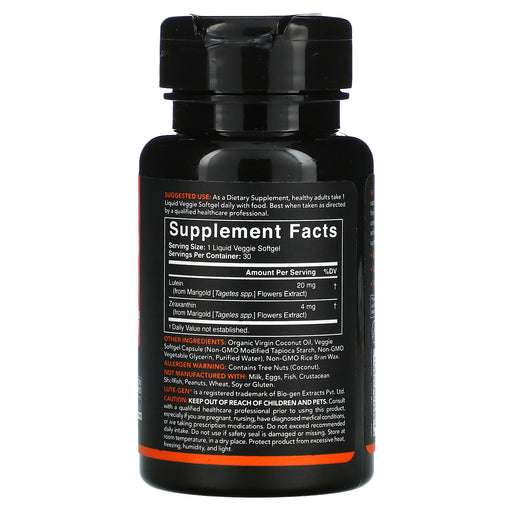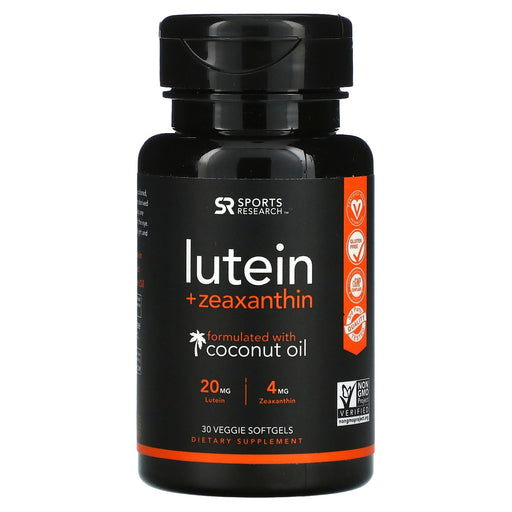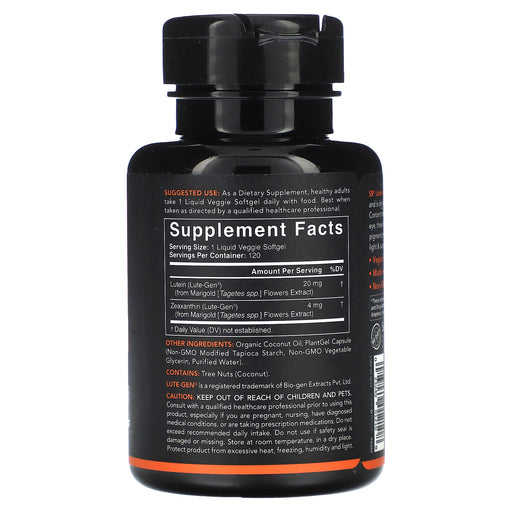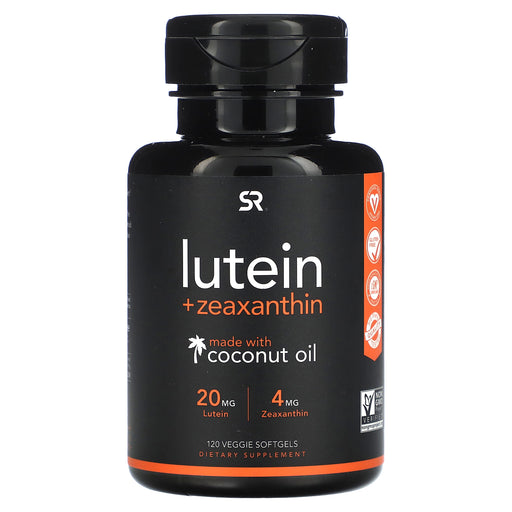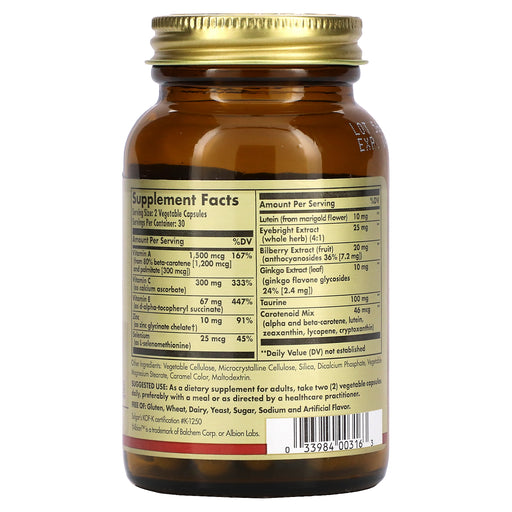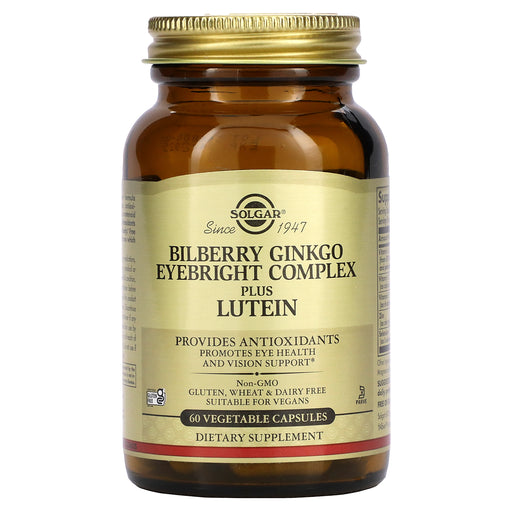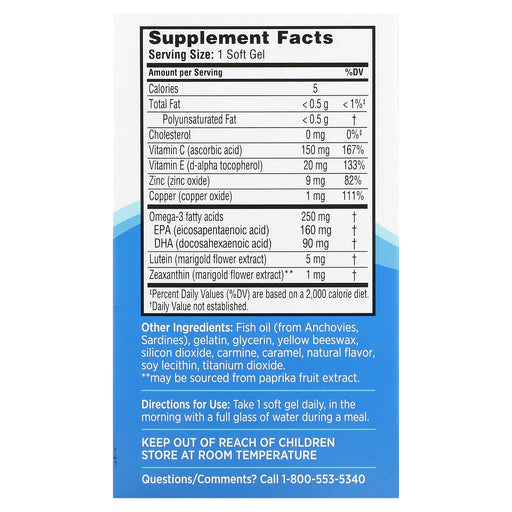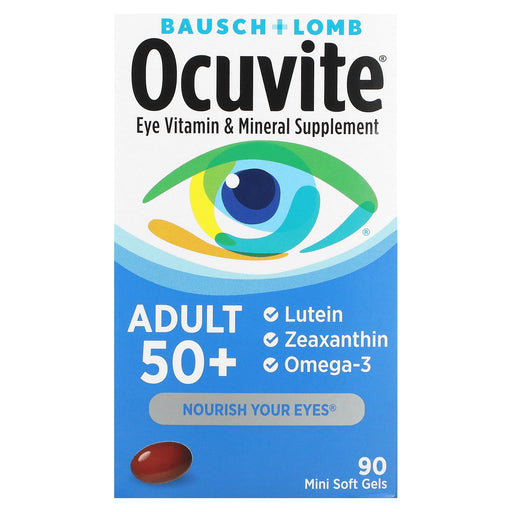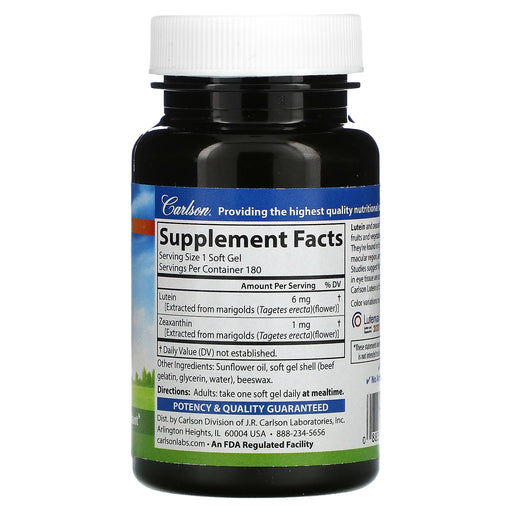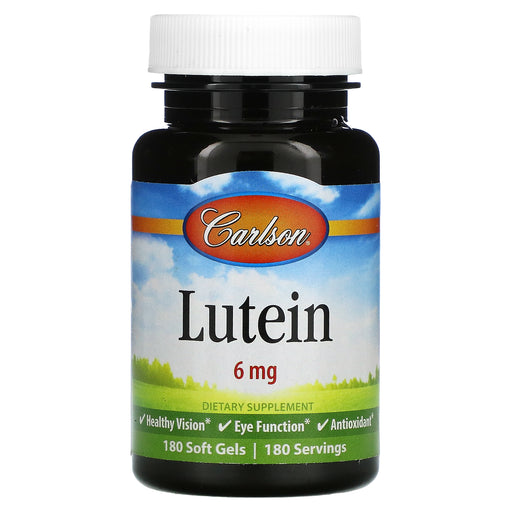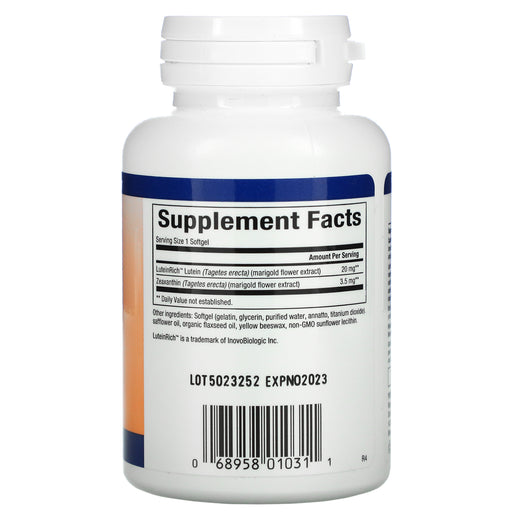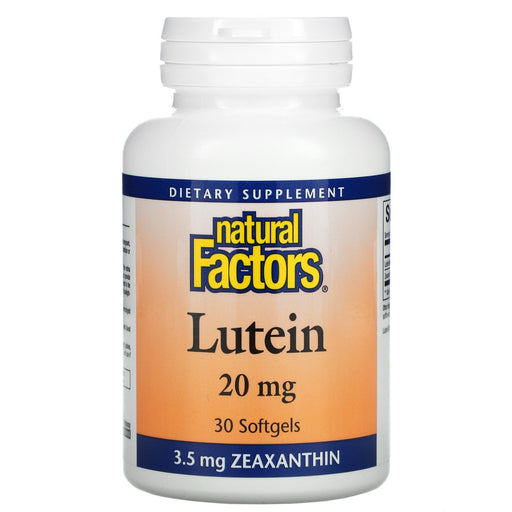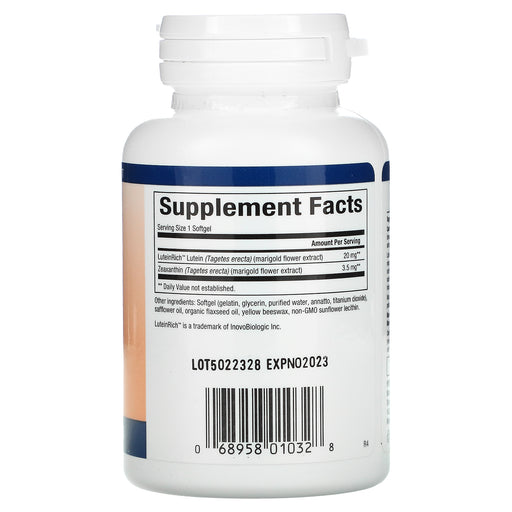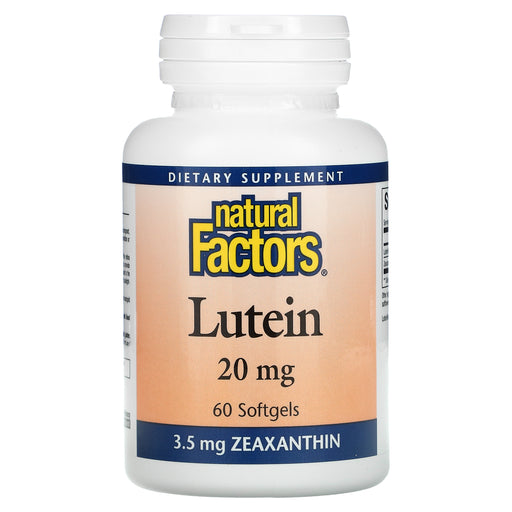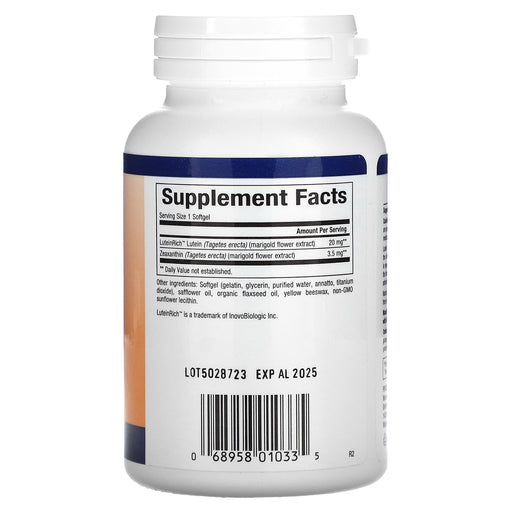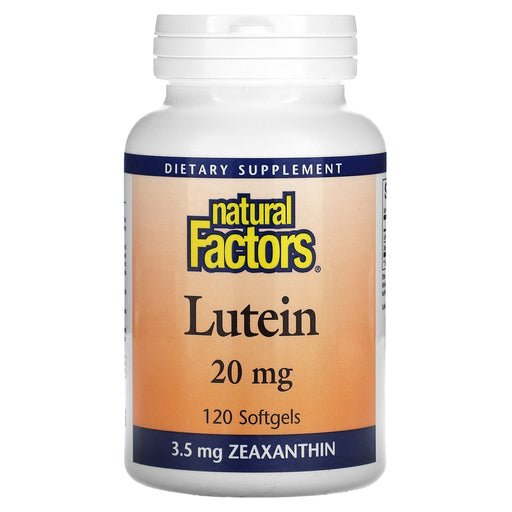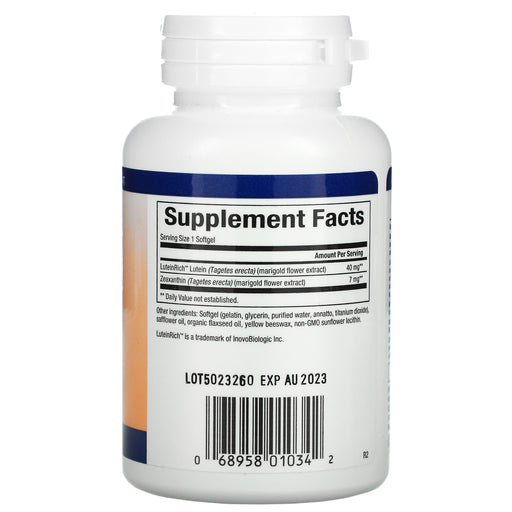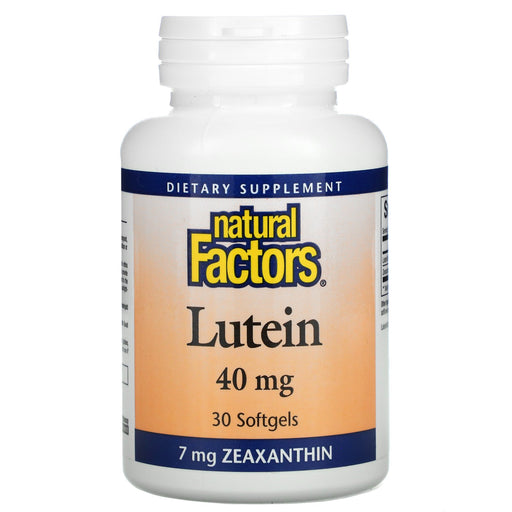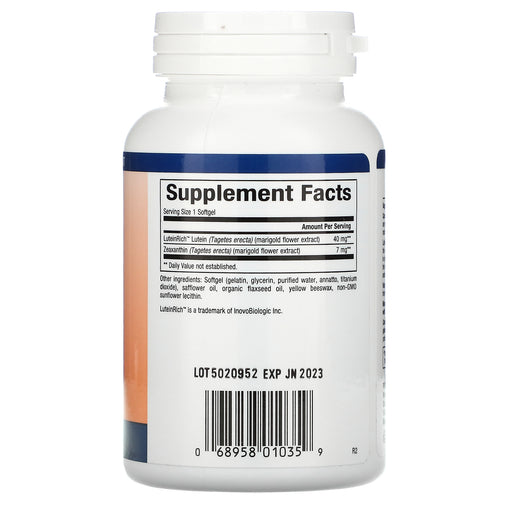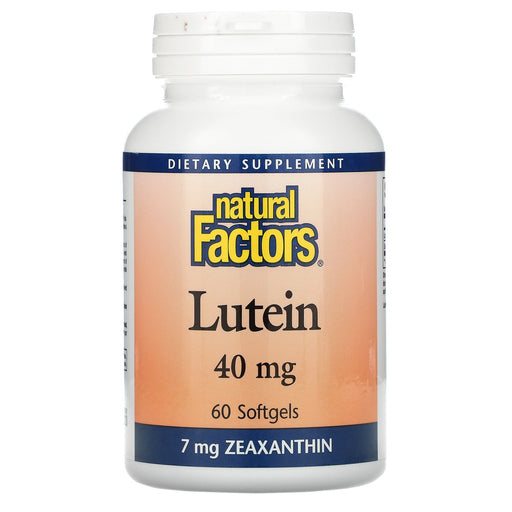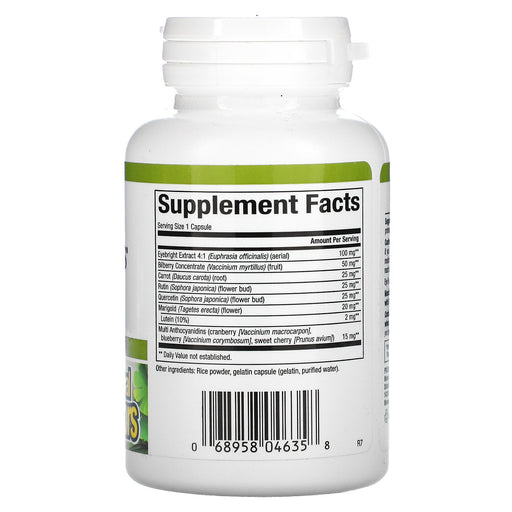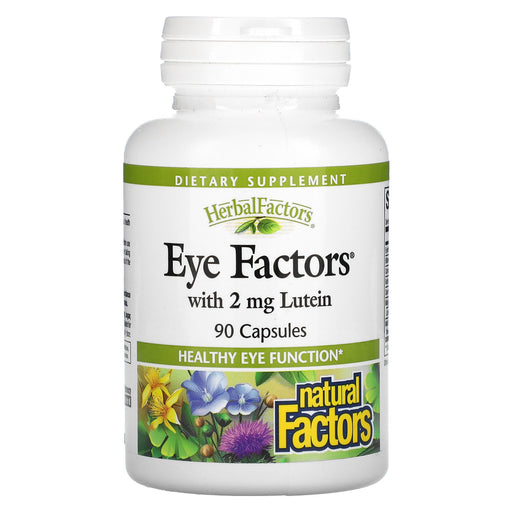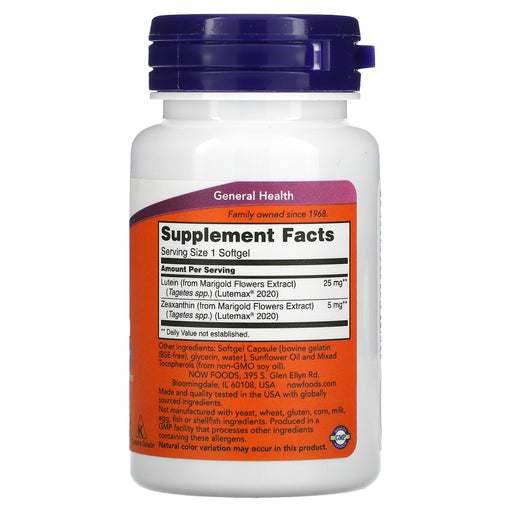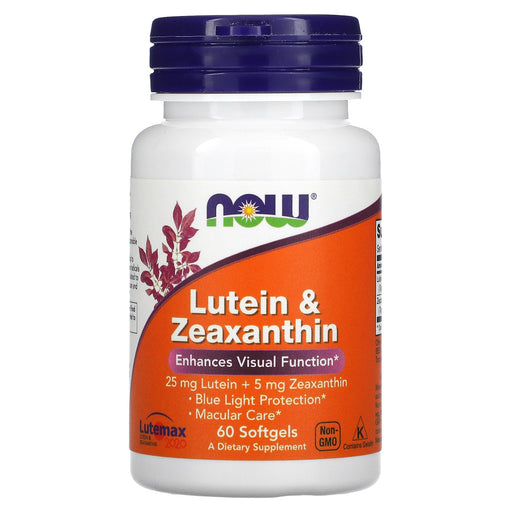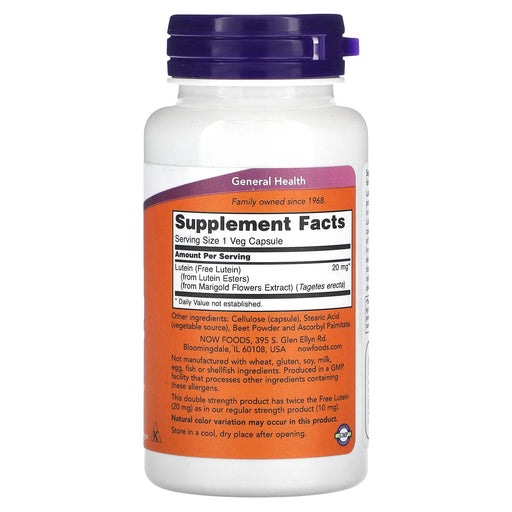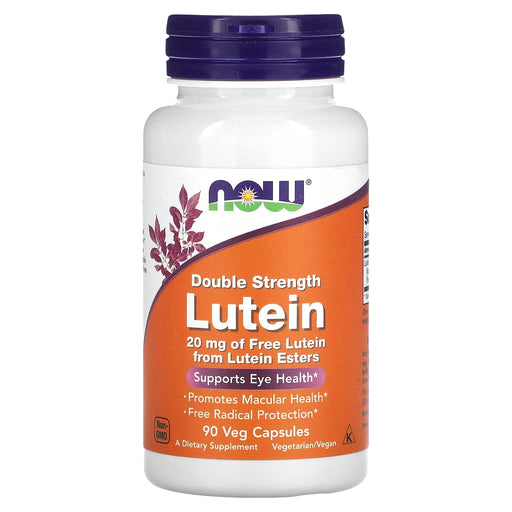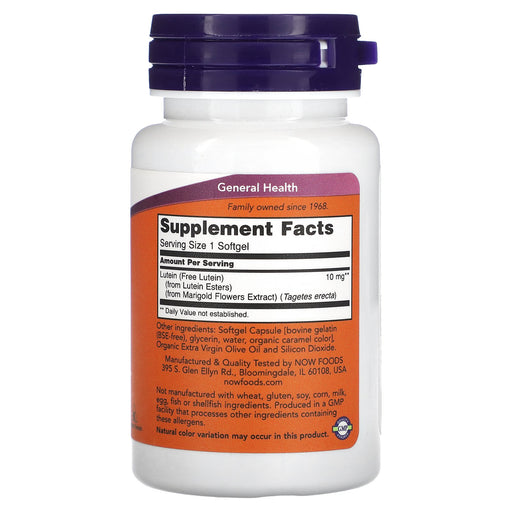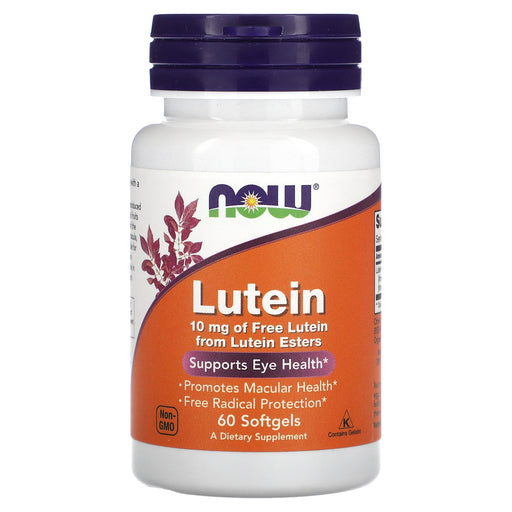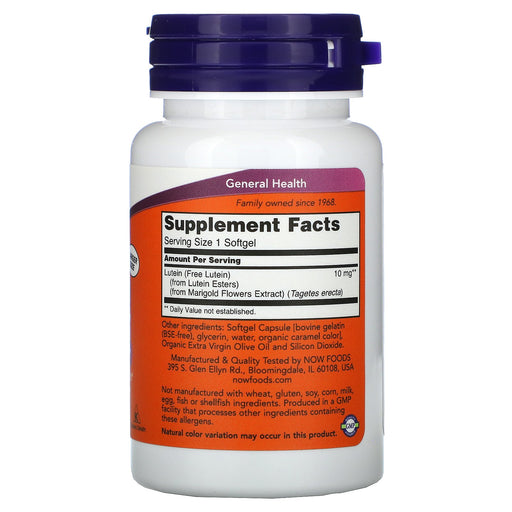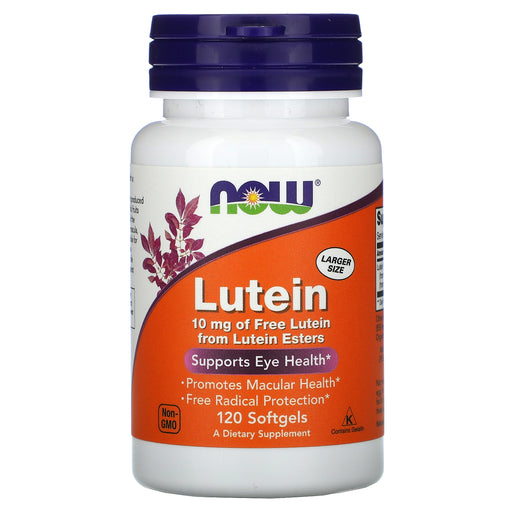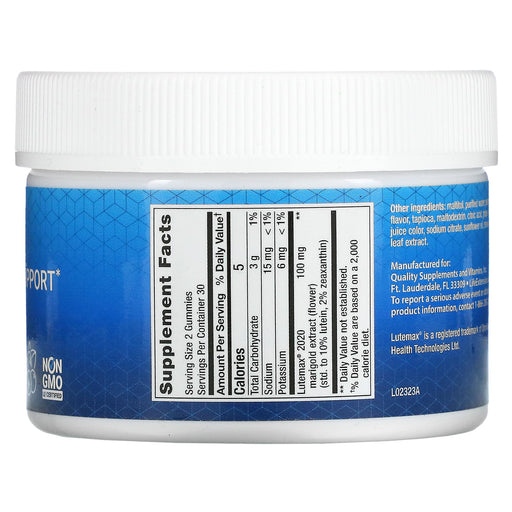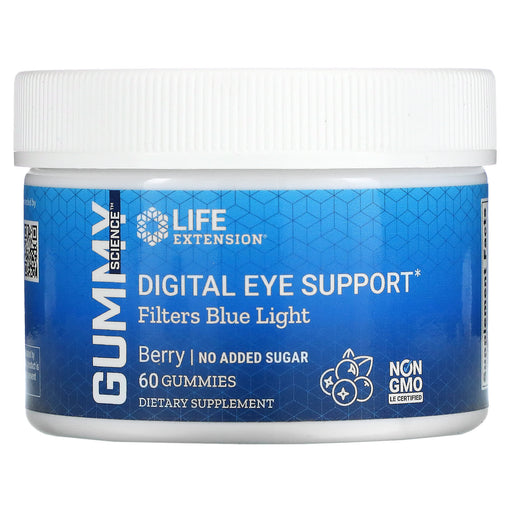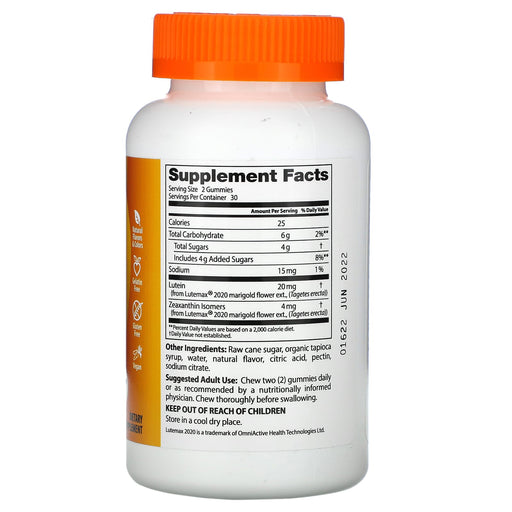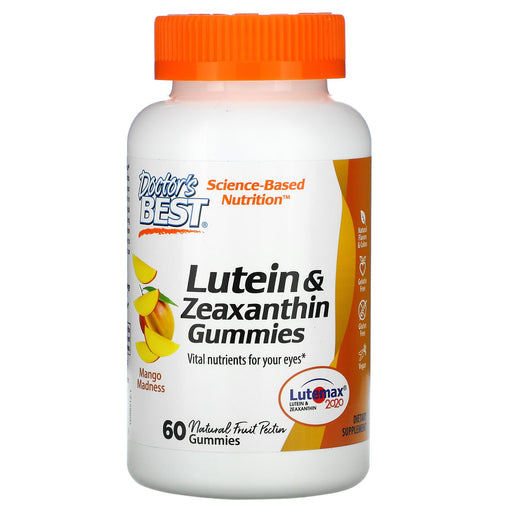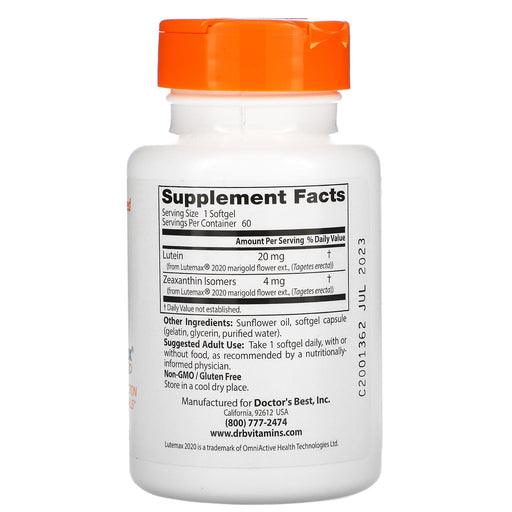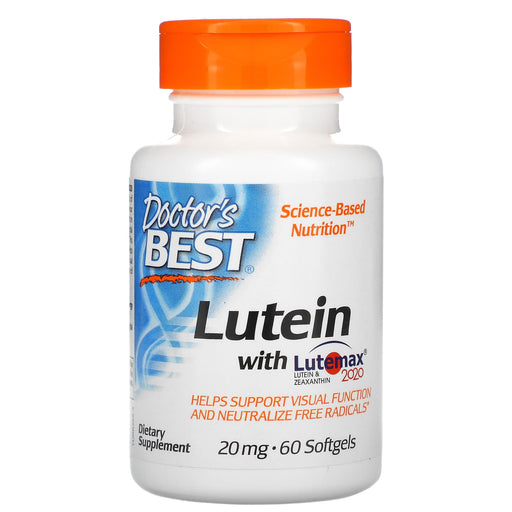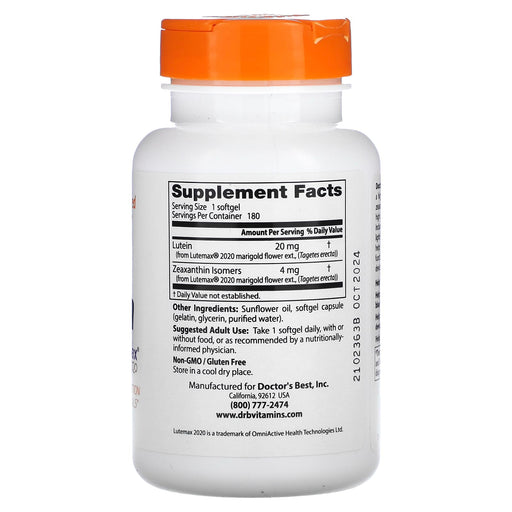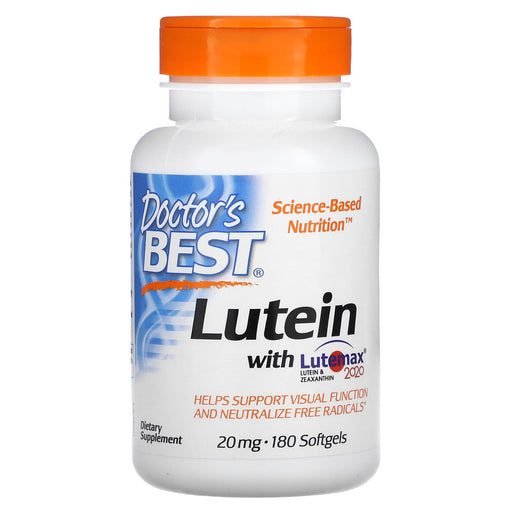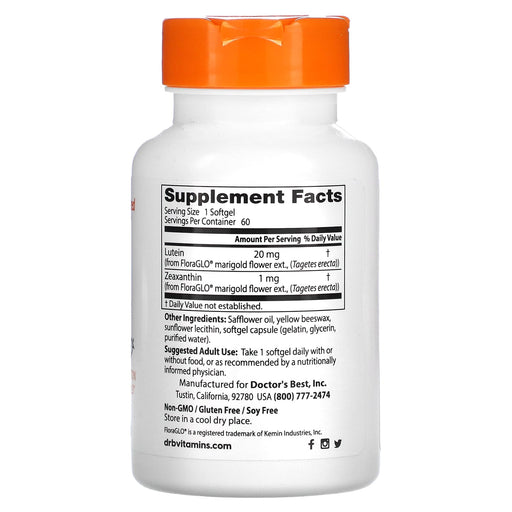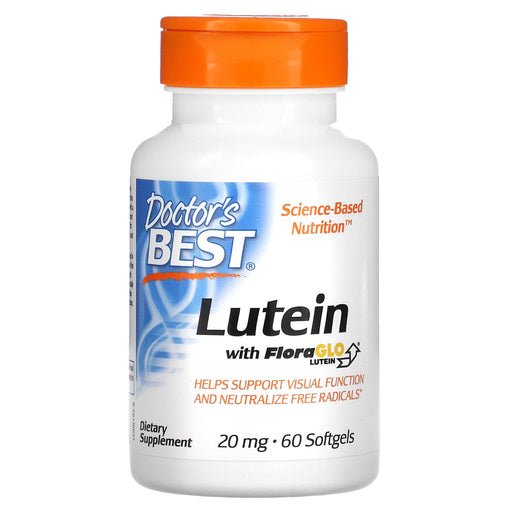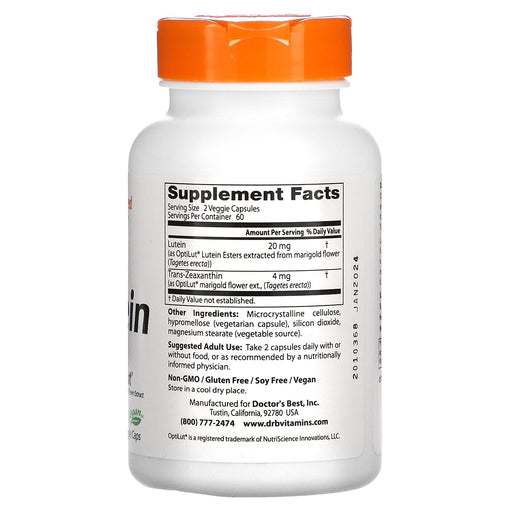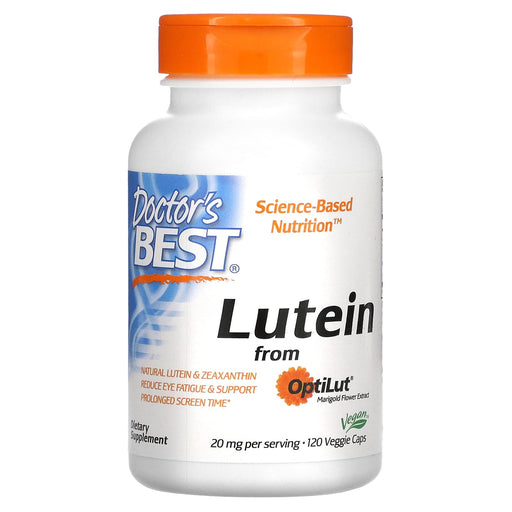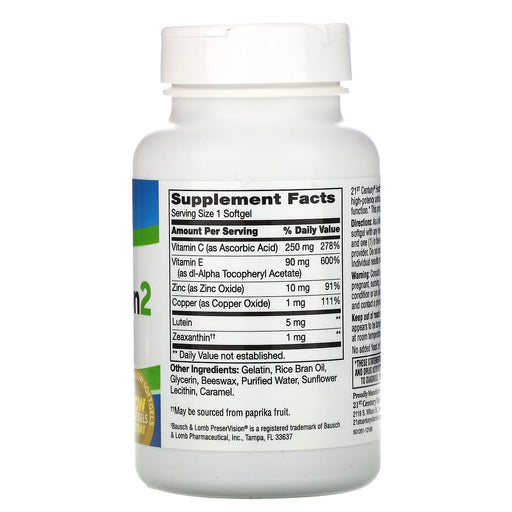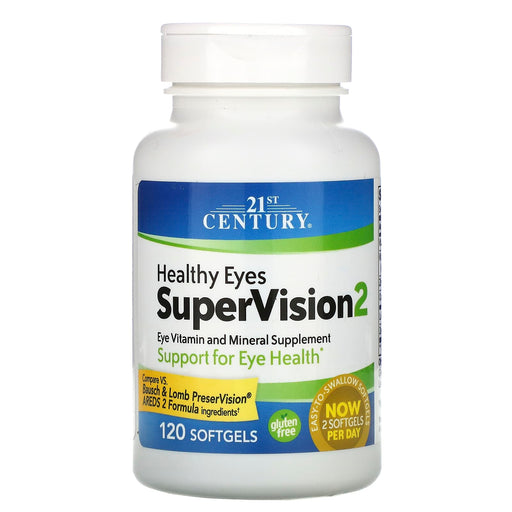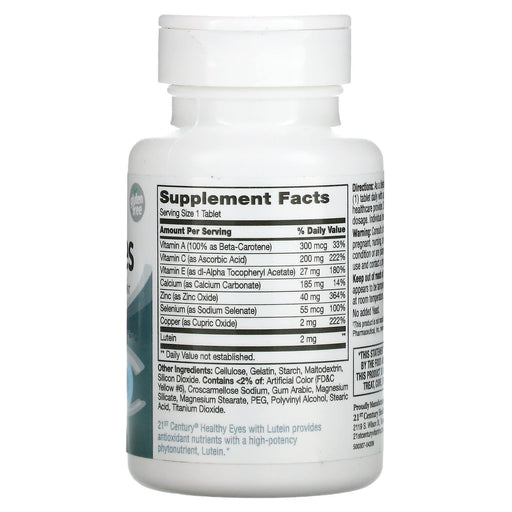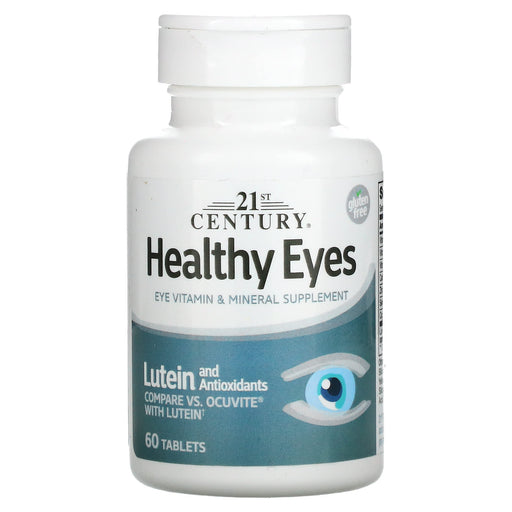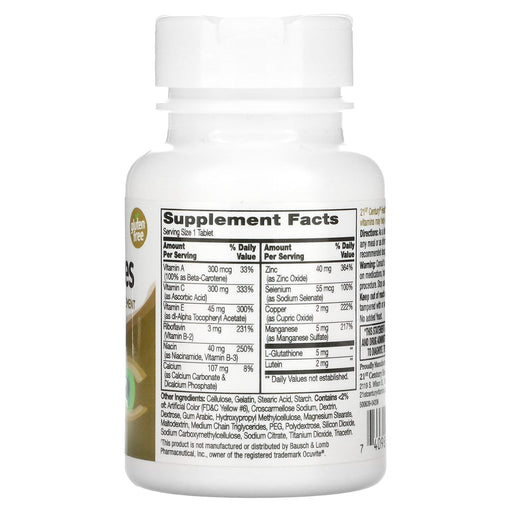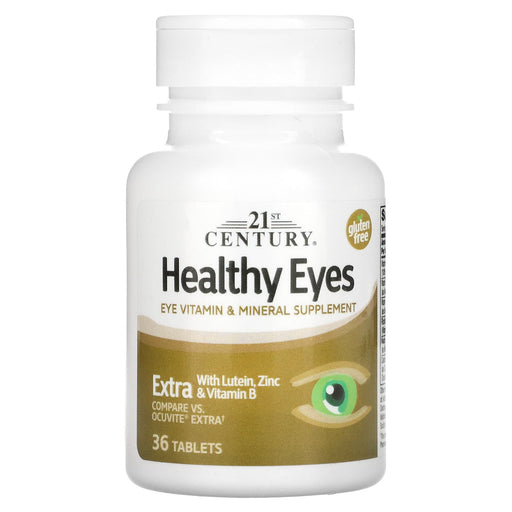
Protect Your Vision and Enhance Your Eye Health with Lutein and Zeaxanthin
Lutein and zeaxanthin are two essential carotenoids that play a crucial role in maintaining healthy vision and protecting your eyes from age-related damage. These powerful antioxidants are found naturally in leafy green vegetables and other colorful fruits and vegetables, but many people may not consume enough through diet alone. This is where lutein and zeaxanthin supplements come in - providing a convenient and effective way to ensure your eyes receive the essential nutrients they need to function at their best. By incorporating lutein and zeaxanthin into your wellness routine, you can support your eye health, enhance visual performance, and protect your precious gift of sight for years to come.
The Crucial Role of Lutein and Zeaxanthin in Eye Health
Lutein and zeaxanthin are concentrated in the macula, the central part of the retina responsible for sharp, detailed vision. These carotenoids work together to form the macular pigment, which acts as a natural sunscreen for the eyes, filtering out harmful blue light and protecting the delicate structures of the retina from oxidative stress and damage. The key functions of lutein and zeaxanthin in eye health include:
- Blue Light Filtration: Lutein and zeaxanthin absorb harmful blue light, which is known to cause oxidative stress and damage to the retina, helping to protect the eyes from the damaging effects of digital screens, LED lights, and sunlight.
- Antioxidant Protection: As powerful antioxidants, lutein and zeaxanthin help to neutralize free radicals and protect the eyes from oxidative stress, reducing the risk of age-related eye disorders such as cataracts and macular degeneration.
- Visual Performance Enhancement: By increasing the density of the macular pigment, lutein and zeaxanthin can help to improve visual acuity, contrast sensitivity, and glare recovery, enhancing overall visual performance and comfort.
- Neuroprotection: Some studies suggest that lutein and zeaxanthin may also provide neuroprotective benefits, supporting the health and function of the optic nerve and other neural structures in the eye.
The Benefits of Lutein and Zeaxanthin Supplementation
While lutein and zeaxanthin are found naturally in a variety of foods, many people may not consume enough to achieve optimal levels in the eyes. Supplementing with these essential carotenoids can offer a range of potential benefits for eye health and visual performance, including:
- Reduced Risk of Age-Related Eye Disorders: Studies have shown that higher levels of lutein and zeaxanthin in the diet and in the eyes are associated with a lower risk of age-related macular degeneration (AMD) and cataracts, two of the leading causes of vision loss in older adults.
- Improved Visual Acuity and Contrast Sensitivity: Lutein and zeaxanthin supplementation has been shown to improve visual acuity and contrast sensitivity, particularly in conditions of glare or low-contrast, helping to enhance visual performance and comfort.
- Faster Glare Recovery: By increasing the density of the macular pigment, lutein and zeaxanthin can help the eyes recover more quickly from exposure to bright light or glare, reducing visual discomfort and strain.
- Protection from Digital Eye Strain: With the increasing use of digital devices and exposure to blue light, lutein and zeaxanthin supplementation can help to protect the eyes from the potential harmful effects of prolonged screen time, reducing the risk of digital eye strain and fatigue.
- Overall Eye Health Support: By providing essential antioxidant protection and nourishment to the eyes, lutein and zeaxanthin supplementation can help to maintain optimal eye health and function, promoting clear, comfortable vision throughout life.
Choosing the Right Lutein and Zeaxanthin Supplement
When selecting a lutein and zeaxanthin supplement, it's important to choose a high-quality product from a reputable brand. Look for supplements that:
- Provide clinically effective dosages of lutein and zeaxanthin, typically ranging from 10mg to 20mg of lutein and 2mg to 4mg of zeaxanthin per day
- Use natural, bioavailable forms of these carotenoids, such as those derived from marigold flowers or other plant sources
- Are manufactured in GMP-certified facilities to ensure purity, potency, and safety
- Are free from unnecessary additives, fillers, and allergens
- Are third-party tested for quality and purity
As with any new supplement, it's essential to consult with a healthcare professional before starting lutein and zeaxanthin supplementation, especially if you have a pre-existing eye condition or are taking medications.
Related Vitamins and Supplements
While lutein and zeaxanthin are powerful eye health nutrients on their own, certain vitamins and supplements can complement their benefits and support overall eye health and function. Some relevant options to consider alongside lutein and zeaxanthin include:
- Vitamin A: This essential vitamin is crucial for healthy vision, particularly night vision, and works synergistically with lutein and zeaxanthin to support overall eye health.
- Omega-3 Fatty Acids: These anti-inflammatory fats, particularly DHA, are concentrated in the retina and support healthy vision, tear production, and overall eye health.
- Zinc: This mineral is essential for the transport and utilization of vitamin A in the eyes and has been shown to support healthy vision and reduce the risk of age-related eye disorders.
- Bilberry: This antioxidant-rich berry has been traditionally used to support eye health, particularly night vision, and may enhance the protective effects of lutein and zeaxanthin.
Experience the Vision-Protecting Power of Lutein and Zeaxanthin
At Health Orchard, we are dedicated to providing our customers with the highest quality lutein and zeaxanthin supplements to support optimal eye health, visual performance, and long-term vision protection. Our carefully curated selection features supplements from trusted brands, formulated with pure, bioavailable ingredients for optimal efficacy and safety.
Whether you're looking to reduce your risk of age-related eye disorders, enhance visual acuity and contrast sensitivity, protect your eyes from digital eye strain, or simply maintain optimal eye health and function, our lutein and zeaxanthin supplement collection has the perfect product to meet your needs.
Witness the essential role of lutein and zeaxanthin in protecting your precious gift of sight and experience the difference these powerful carotenoids can make in your journey towards lifelong eye health and visual clarity. Browse our selection today and take the first step towards nourishing your eyes and safeguarding your vision with these vital nutrients.
Frequently Asked Questions about Lutein & Zeaxanthin
1. What are lutein and zeaxanthin supplements used for?
Lutein and zeaxanthin supplements are primarily used to support eye health and vision. These two compounds are carotenoids that are naturally found in the macula of the eye, where they act as powerful antioxidants and help protect against age-related eye disorders. Some potential benefits of lutein and zeaxanthin supplements include:
- Reducing the risk of age-related macular degeneration (AMD)
- Protecting against cataracts and improving visual acuity
- Enhancing visual performance, especially in low-light conditions
- Filtering harmful blue light and reducing eye strain
- Supporting overall eye health and function
2. How much lutein and zeaxanthin should I take daily?
The optimal daily intake of lutein and zeaxanthin may vary depending on individual needs and health status, but general recommendations suggest:
- For healthy adults: 6-10 mg of lutein and 2-4 mg of zeaxanthin per day
- For people with age-related macular degeneration (AMD): 10-20 mg of lutein and 2-4 mg of zeaxanthin per day
Most lutein and zeaxanthin supplements provide a combined dose of these carotenoids, typically ranging from 10-25 mg per serving. It is essential to follow the recommended dosage on the product label and consult with a healthcare professional, especially if you have pre-existing eye conditions or are taking medications.
3. Is lutein safe for the kidneys?
Yes, lutein is generally considered safe for the kidneys when taken at recommended doses. Lutein is a naturally occurring carotenoid that is found in various foods, such as leafy greens, and is well-tolerated by most people. In fact, some studies suggest that lutein may have potential protective effects on kidney health by reducing inflammation and oxidative stress. However, if you have pre-existing kidney problems or are taking medications that affect kidney function, consult with a healthcare professional before taking lutein supplements to ensure safety and avoid potential interactions.
4. Can lutein improve eyesight?
Lutein, along with zeaxanthin, may help improve various aspects of eyesight and visual performance:
- Visual acuity: Some studies suggest that lutein and zeaxanthin supplementation may improve visual acuity, especially in people with age-related eye conditions.
- Contrast sensitivity: Lutein and zeaxanthin may enhance contrast sensitivity, making it easier to distinguish between objects of different shades and colors.
- Glare recovery: These carotenoids may help reduce the time it takes for the eyes to recover from bright light exposure, improving visual function in glare conditions.
5. Can lutein help with blurred vision?
Lutein may help improve blurred vision, particularly when it is caused by age-related eye conditions such as cataracts or macular degeneration. Lutein and zeaxanthin are concentrated in the macula, the central part of the retina responsible for sharp, detailed vision. By acting as antioxidants and filtering harmful blue light, these carotenoids help maintain the health and function of the macula, which may reduce the risk of blurred vision associated with age-related eye disorders. However, it is essential to note that lutein supplements alone may not be sufficient to treat severe cases of blurred vision, and a comprehensive eye exam by a healthcare professional is necessary to determine the underlying cause and appropriate treatment.
6. Which vitamin is best for eyesight?
Several vitamins and nutrients play crucial roles in maintaining healthy eyesight, but some of the most important ones include:
- Vitamin A: Essential for night vision and the health of the cornea and retina
- Vitamin C: A powerful antioxidant that helps protect the eyes from oxidative damage and may reduce the risk of cataracts
- Vitamin E: Another antioxidant that helps defend the eyes against cellular damage and may slow the progression of age-related macular degeneration (AMD)
- Zinc: Plays a key role in the formation of visual pigments in the retina and helps protect against night blindness and AMD
- Lutein and Zeaxanthin: Carotenoids that help protect the macula from damage and may reduce the risk of AMD and cataracts
A well-balanced diet rich in fruits, vegetables, and omega-3 fatty acids, along with targeted eye health supplements, can help ensure an adequate intake of these essential vitamins and nutrients for optimal eyesight.


